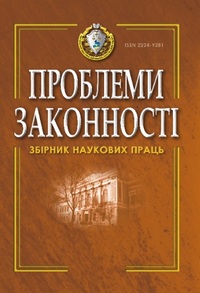Довіра до електронного голосування: естонський кейс
Trust in Electronic Voting: the Estonian Case
Author(s): Kateryna PavshukSubject(s): Law, Constitution, Jurisprudence, Electoral systems
Published by: Національний юридичний університет імені Ярослава Мудрого
Keywords: sаfe electronic voting; parliamentary elections in Estonia; contesting voting results;
Summary/Abstract: The article is devoted to researching the problem of creating and using such a transparent and secure voting technology, which would not only have a high level of trust, but also the potential to strengthen the legitimacy of constitutional orders, using the example of the 2023 Estonian parliamentary elections. The relevance of the topic is due to the fact that for Ukraine the use of electronic election technologies, in particular electronic voting itself, especially now, is the most discussed near future. It is organically connected with amendments to the election and referendum legislation of Ukraine. The subject of the study is electronic voting, establishing its results and the procedure for contesting them in Estonian electoral practice. The purpose of the article is to refute or confirm the thesis about the ability of electronic voting to have such a support and level of trust that it can completely replace the traditional way of voting, using the example of the Estonian experience. The research uses the method of analysis and synthesis of scientific information, empirical and dialectical methods of scientific knowledge. The model of electronic voting, counting of votes and their appeal was studied. It has been established that the legislation lays the foundation for falsifications with the use of broad discretionary powers of the electoral process administration bodies. The main factors that can undermine confidence in the institution are analyzed. Among them are the questionable constitutionality of the powers of the central administrative bodies, the lack of independent observers of the internal work of the electronic voting system, and significant shortcomings in the procedure for contesting the results. Special attention is paid to analytical studies, judicial practice is analyzed. It was found that in order to increase the transparency of the elections, it is necessary to use endtoend verification methods and ensure quality audit at all critical stages of determining the results of online voting. An interim conclusion was made about the impracticality of completely replacing the traditional paper method of voting with a remote one, at least in the near term, due to insufficient security guarantees.
Journal: Проблеми законності
- Issue Year: 2024
- Issue No: 166
- Page Range: 26-42
- Page Count: 17
- Language: Ukrainian

